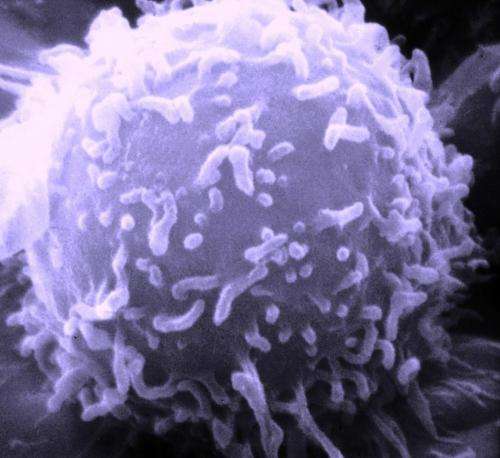Add fatty acid to taste: New technology reveals single cancer cells have different appetites for fatty acids

A new method developed by Institute for Systems Biology (ISB) and University of California, Riverside provides new insights into cancer biology by allowing researchers to show how fatty acids are absorbed by single cells.
Fatty acids, along with glucose and amino acids, are a major energy source for cellular growth and proliferation, and abnormal fatty acid metabolism is often seen in cancer. Dr. Wei Wei's lab at ISB and Dr. Min Xue's lab at UC Riverside have been collaborating for years to develop a series of chemical probes and analytical approaches for quantifying cellular glucose uptake, lactate production, amino acid uptake, and other cancer-related metabolites.
Unlike glucose and amino acids, however, the mechanisms underlying the uptake of fatty acids into cells have been lesser known and difficult to discern. The technical tools for measuring fatty acid uptake at the single-cell level are extremely limited.
"This work is the first example of profiling fatty acid uptake in conjunction with aberrant protein signaling in cancer cells at single-cell resolution and represents an important advance in the single-cell metabolic assay," said ISB Assistant Professor Dr. Wei Wei, co-corresponding author of a just-published paper in the Journal of the American Chemical Society.
To profile the fatty acid uptake, the researchers chose a surrogate molecule that was structurally similar to natural fatty acids. This similarity tricked the cells into taking up these surrogates like the native ones. Then, using a unique dendrimer molecule—a tree-like polymer—the researchers achieved precise quantitation of those surrogates from single cells.
Applying this new single-cell tool to a brain cancer model, the researchers identified that fatty acid uptake was differentially regulated by two downstream effectors of the Mammalian Target of Rapamycin (mTOR) - a critical regulator of cell proliferation and protein synthesis. The results revealed a compensatory activation of fatty acid metabolism upon oncogene inhibition or attenuation of glucose metabolism in these brain cancer cells and uncovered a novel combination therapy that targets this bioenergetic flexibility to synergistically block the tumor growth.
"This novel tool opens new avenues for studying how fatty acid metabolism affects biological systems. It has also inspired us to develop more metabolic probes for single-cell analysis," said UC Riverside Assistant Professor Dr. Min Xue, co-corresponding author on the paper.
More information: Zhili Guo et al, Single-Cell Profiling of Fatty Acid Uptake Using Surface-Immobilized Dendrimers, Journal of the American Chemical Society (2021). DOI: 10.1021/jacs.1c05103



















